At the start of the academic year, the founders of the UCU Business School came to welcome the incoming Master’s students, sharing the story of the School’s creation, valuable business advice, and fresh perspectives.
«A business school won’t give you a ready-made recipe for solving problems. But it will teach you to think globally and look for options,» said Oleh Denys — co-founder of SoftServe, Vice President of Finance, and member of the Supervisory Board of the UCU Business School — as he welcomed the new students. What is the story of the UCU Business School, and why do leaders trust it? Read on to find out.
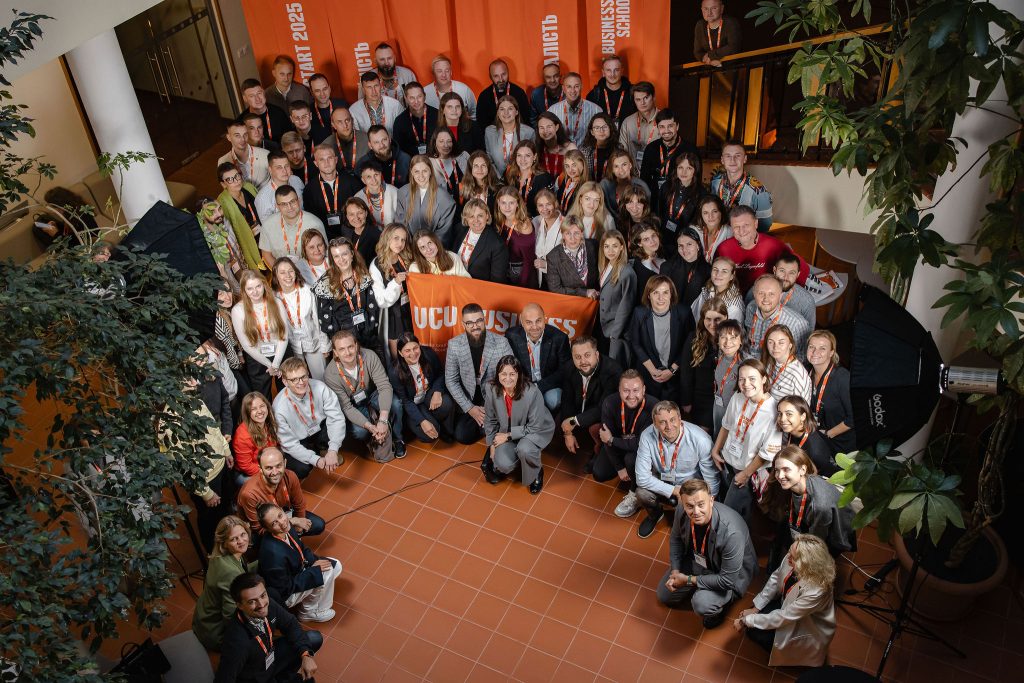
On the evening of the first day of classes, students of the Master’s programs were greeted, inspired, and encouraged by key people behind the School’s founding and growth: Sofia Opatska, founding dean of the UCU Business School and Vice-Rector for Strategic Development at UCU; Nazar Kupybida, Vice President of Finance at the Galnaftogaz Concern; and Oleh Denys, co-founder of SoftServe and member of the Business School’s Supervisory Board.During the discussion, Yaryna Boychuk, Director of the UCU Business School, recalled the School’s 17-year journey. «The UCU Business School was founded in 2008, and I can confidently say that its greatest strength lies in its core values and inner foundation,» she emphasized.
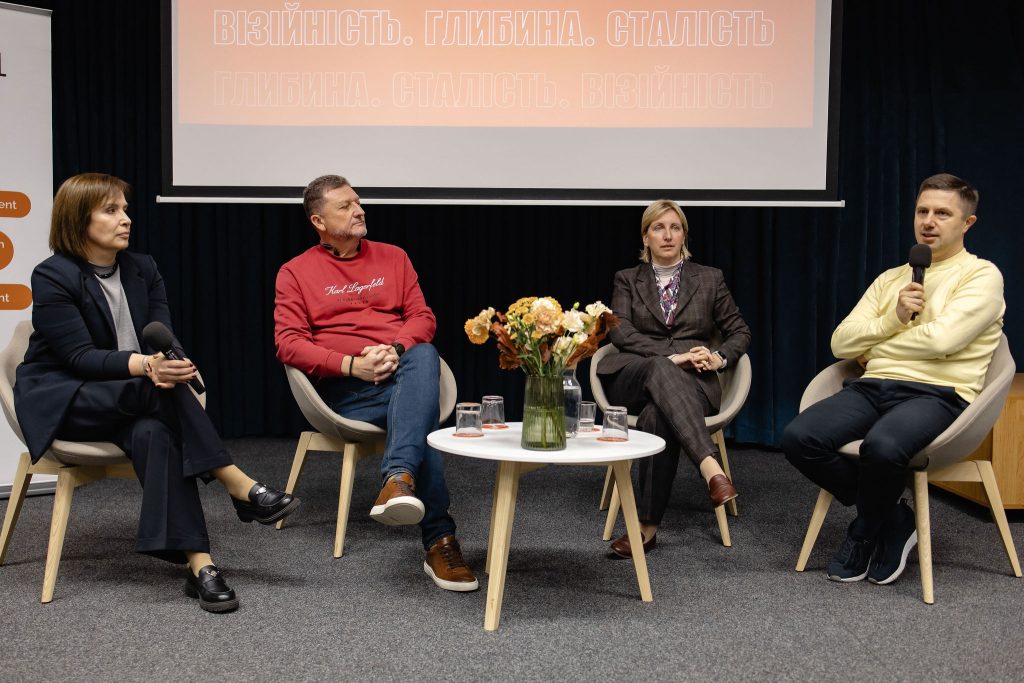
Sofia Opatska congratulated the students on the beginning of their journey and recalled that the first person to speak publicly about the idea of a business school in Lviv was Yaroslav Rushchyshyn — civic leader, entrepreneur, co-founder of the UCU Business School, and Honorary Senator of UCU.
«A business school, first and foremost, helps build trust between people. So even back at the very beginning, the core idea was to develop trust. Another aspiration was to show the world that we, Ukrainians, are not inferior — in fact, we often excel. And we know how to make Ukrainian business successful.»
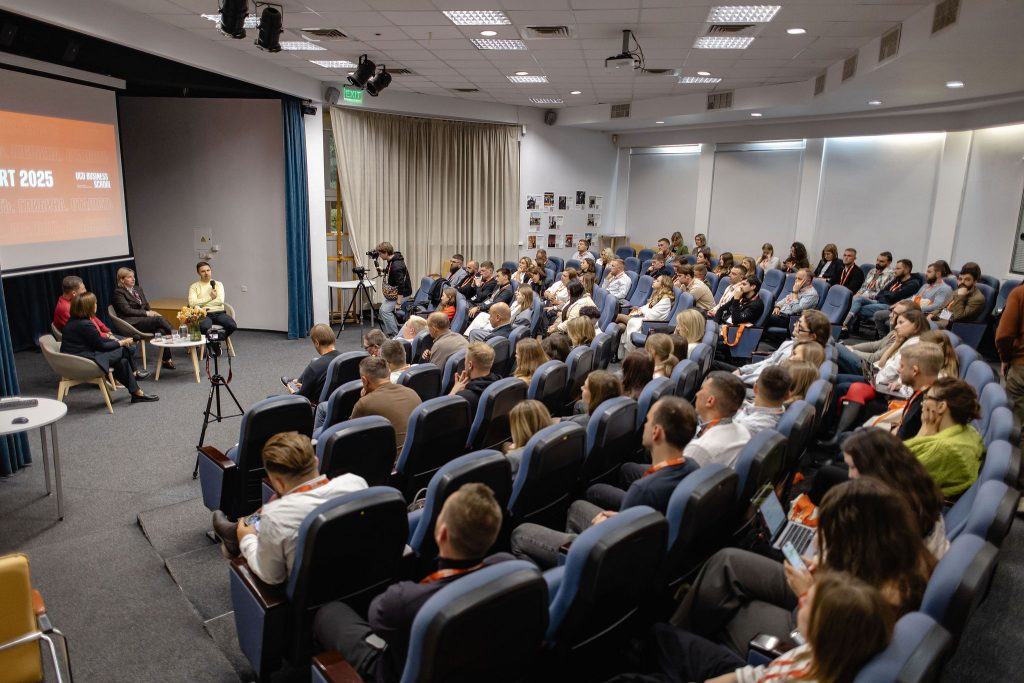
Sofia Opatska also noted:
«UCU is perhaps the only university in Ukraine with its own online platform for courses. The university is an ecosystem — it’s not just a professor lecturing in a classroom, but everything that surrounds a student’s educational and life journey. We are a Living Learning Community. In just a year and a half, you develop the habit of learning.»
According to her, the primary mission of the UCU Business School is not merely to transfer knowledge or skills — those can be learned from books or training companies.
«What matters most is shaping your attitude. We aim to work with your mindset, your values, and your integrity. And that’s something no quick digital project can offer,» she added.
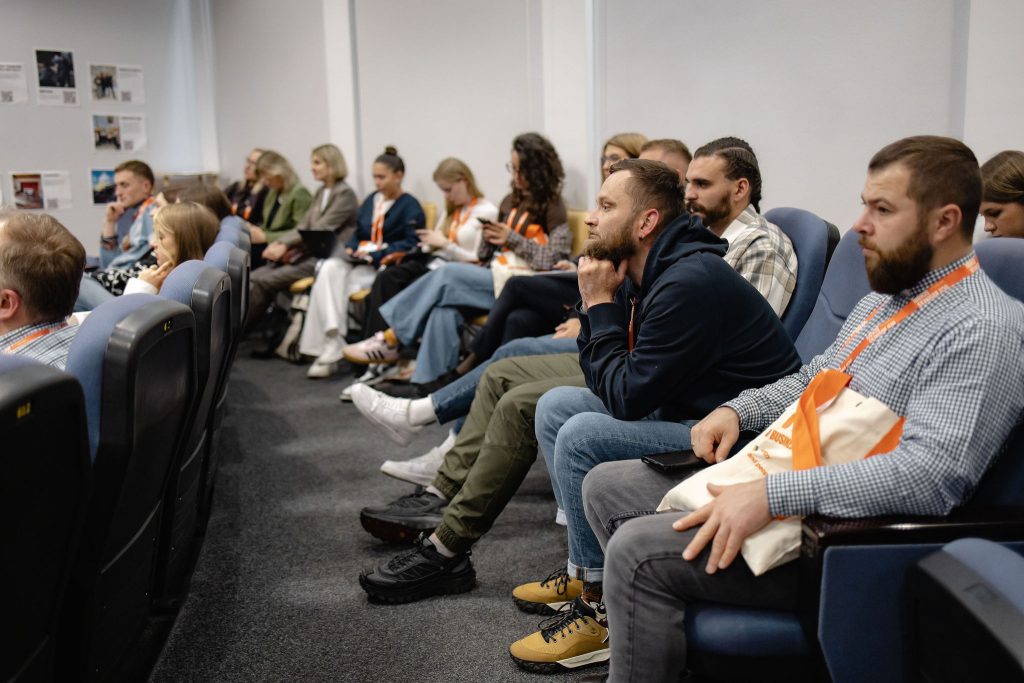
Oleh Denys, co-founder of SoftServe, also shared his reflections. He recalled the early doubts about whether a seminary and business could coexist in the same institution. But he noted that the result has been overwhelmingly positive.
He encouraged students to cultivate strong communication skills, listen to one another, and avoid waiting for the “perfect moment” to start a business — because speed is one of today’s most vital traits.
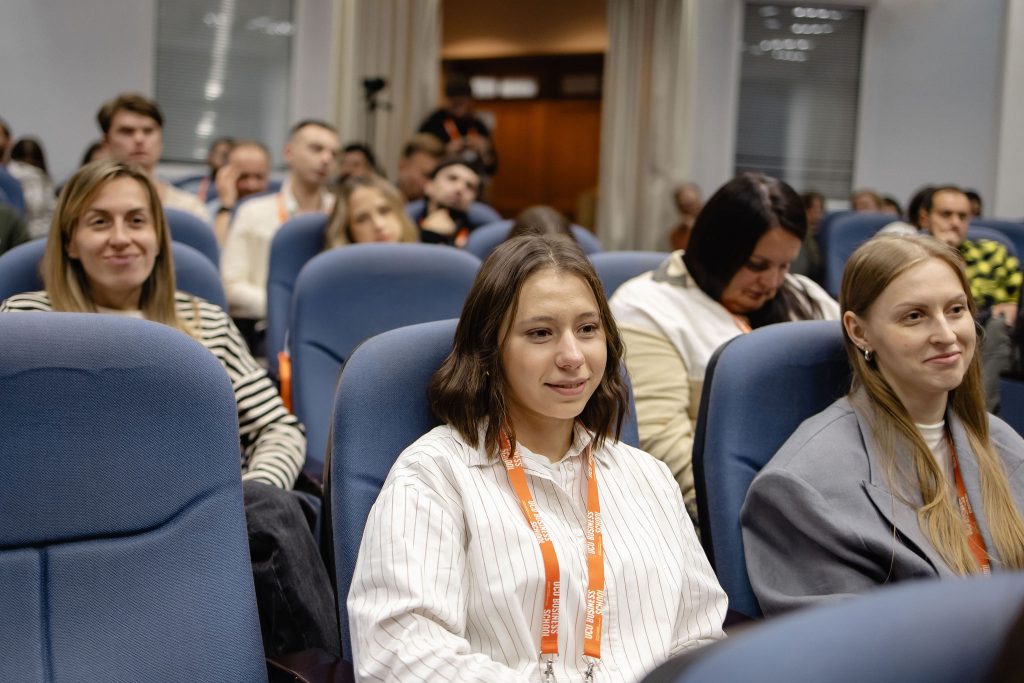
«A business school won’t give you a recipe for solving problems. But it will teach you to think globally, explore different options. There is no magical formula for how to do things. At times, it will be very hard — because learning is hard work. But you must keep going and keep moving,» Denys advised.
Nazar Kupybida, a top executive at OKKO, also joined the conversation. He spoke about different business strategies and the inner workings of large corporations.
«We realized that to launch new initiatives and projects, we would need well-educated people who understand modern concepts and management approaches. That’s why we gladly became a donor for UCU. And we’re proud of the UCU Business School, which has built a strong name for itself in Ukraine.»
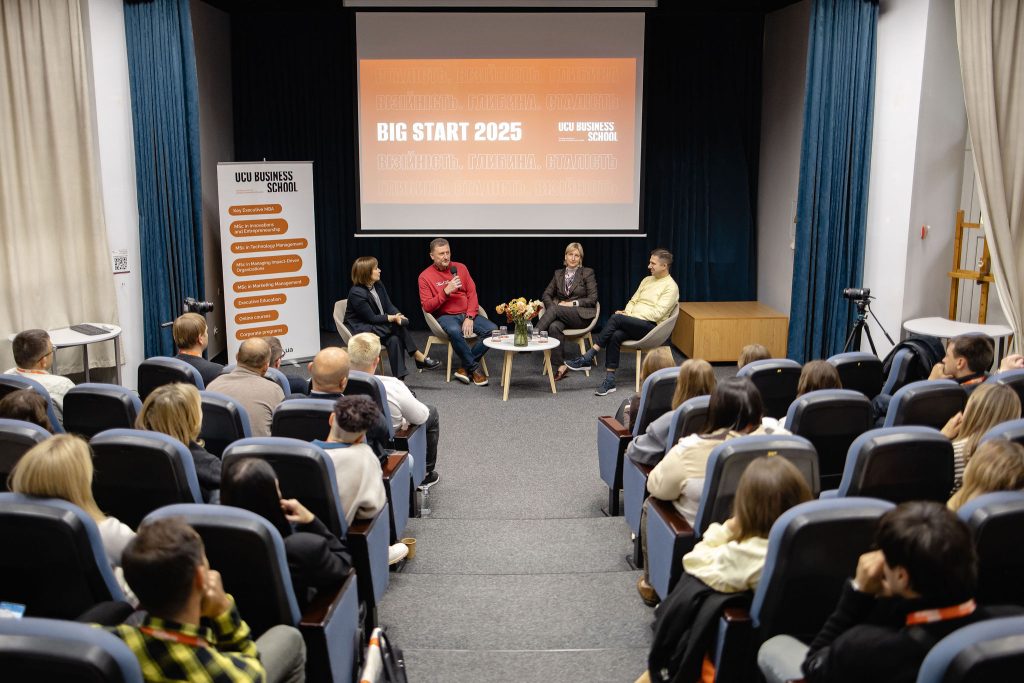
The event concluded with a Q&A session between students and the founders. They discussed the state of education in Ukraine, business ideas, corporate investment trends, careers in large companies, the war and its impact on society — and the new opportunities that emerge in times of crisis.




















